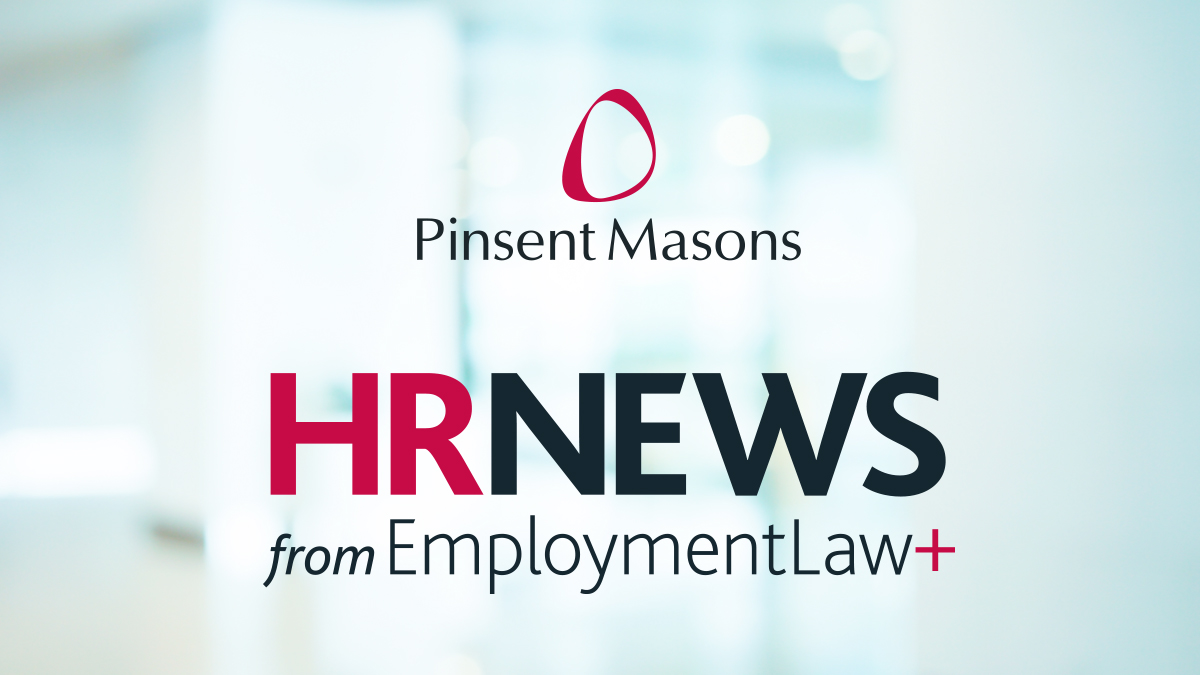The Council of the EU and the European Parliament have reached a provisional agreement to revise the European Works Council Directive. The changes, if adopted, will significantly strengthen the rights of employees in multinational companies to be informed and consulted on transnational matters. It’s a major development for global HR teams — especially those supporting multinationals with operations in the EU. Although the UK is no longer part of the EWC regime, many employers still include UK reps in their EWCs voluntarily. That could now become increasingly difficult to justify.
The current rules are set out in Directive which dates back to 2009 and sets out the legal framework governing how European Works Councils operate across the EU. They are typically required where a company has at least 1,000 employees across Europe, with 150 in at least two member states. Their purpose is to ensure that employees are kept informed and consulted on issues that affect them across borders.
The reforms aim to strengthen that framework in a number of ways by:
• Removing long-standing exemptions for older, so-called Article 13 agreements
• Introducing stronger enforcement powers, with some references to GDPR-level penalties
• Requiring better funding and support for employee reps, including paid training time
• And making it easier for workers to trigger the creation of a new EWC
That means more compliance pressure, more cost, and more complexity, particularly for employers who haven’t reviewed their EWC structure since before Brexit.
So what should employers be doing now? Earlier I caught up with employment lawyer Ben Brown, who joined me by video link to discuss it. So why does it matter?
Ben Brown: “It matters because the opportunity to revise the agreement might already have been missed by large multinational employers at Brexit and, indeed, prior to Brexit, when the options were on the table to designate central management if the central management was based in the UK before Brexit occurred. A lot of the clients that I see that come to me for advice on this topic have agreements that still use the same language that was used pre-Brexit. That's no longer applicable and no longer fit for purpose in a post-Brexit world where the European Works Council Directive doesn't have direct impact in the UK and the regulations that regulate European Works Councils in the UK have been subject to change because of that fact, and because of Brexit, and a lot of the agreements I see simply just haven't been looked at, and haven't been reviewed and revised, in light of the new world as it applies to European Works Councils where UK employers have those currently in effect.
Joe Glavina: “What is changing Ben? What has been agreed?”
Ben Brown: “The provisional agreement that's been announced by the Council and the European Parliament does shift the goal posts in terms of the nature of European Works Councils that UK- based, headquartered, multinational companies may still have and the reason for that is the nature of the proposed changes. So the definition of what counts as a transnational matter is going to be extended. It's currently where something does affect employees in more than one member state and that's one of the issues we currently find with the agreements where the definition of transnational matters still reflects member states whereas, actually, the UK-based companies are no longer in a member state. So that's one issue, but the definition of transnational is going to be extended to where actually, objectively speaking, employees in one country could be affected by changes proposed in another. So it's not necessarily that they do affect, it’s whether, reasonably speaking, could they affect and I think that's going to have a big impact on the potential scope of things that employers still having UK representatives in European Works Councils is going to be affected by. There are other changes as well of importance for employers when confidential company confidential information can be withheld from EWCs in these scenarios. The ability for a company to simply say we have determined that this is confidential information and therefore we're not going to be sharing with you what that is. Say, for example, changes in the nature of its operations, a potential closure of a site or a potential exit from a jurisdiction completely, that is going to be changed and objective criteria are going to be introduced that a company is going to need to satisfy in order to demonstrate that it has met its obligations to provide information to a European Works Council. The knock-on implication of that is, well, what if they fail to do that and these changes are going to implement more severe penalties, frankly, for companies who fall foul of their information and consultation obligations, including in respect of confidential information that they determined that they don't or shouldn't share. So it's going to get more onerous and it's going to get more expensive for companies to run European Works Councils and I think now is the time before, ultimately, this law is transposed into national laws for you to look at what the agreement you have currently says and determine whether, one, is it fit for purpose and does it have the right terminology and, two, if we've not made changes to it since Brexit and our headquarters is still in the UK, does it even provide the rights we think it provides for UK representatives to be on those European Works Councils? A lot of the work I do is actually trying to row back from situations where those agreements are not fit for purpose because they do not provide the rights that employers think they currently do, and they're operating under false assumptions post Brexit.”
Joe Glavina: “Finally, can ask you about HR’s role in this. I assume you work closely with HR on this?”
Ben Brown: “Very much so. The situations I've been involved in and advised on involve various disciplines internally within companies. So certainly legal teams, but also definitely HR teams as well. It's common for the industrial relations team within large multinational organisations to have representatives on European Works Councils. They are the stakeholders in those relationships, effectively, and they can help to liaise with, to consult with, the European Works Council bodies themselves during plenary meetings, etcetera. But I think from a strategic perspective it definitely is a management, legal, HR conversation and at least all three of those functions and stakeholders have been involved in determining what the strategy should be and when I say strategy I'm talking in particular in this case about whether the UK should still be part of the European Works Council framework for your company. Is that the right thing to do in terms of your employee relations strategy? Is it time to rethink whether that's appropriate in light of the changes that are coming down the track and to the European Directive? And again, that's not just a HR decision that's kind of a companywide decision, but I think HR play a critical role because, ultimately, they are the stakeholders, usually, of employee relation strategies, and engagement strategies, and if the UK representatives are brought out of that European Works Council they may see an opportunity to have other forms of employee engagement that don't necessarily involve all of the regulation and law that applies to European Works Councils.”
If you are a multinational business with a European Works Council and you’d like help with this please do contact Ben – his details are on the screen for you. Alternatively, you can contact your usual Pinsent Masons adviser.
Out-Law / Your Daily Need-To-Know

-
Transcript


